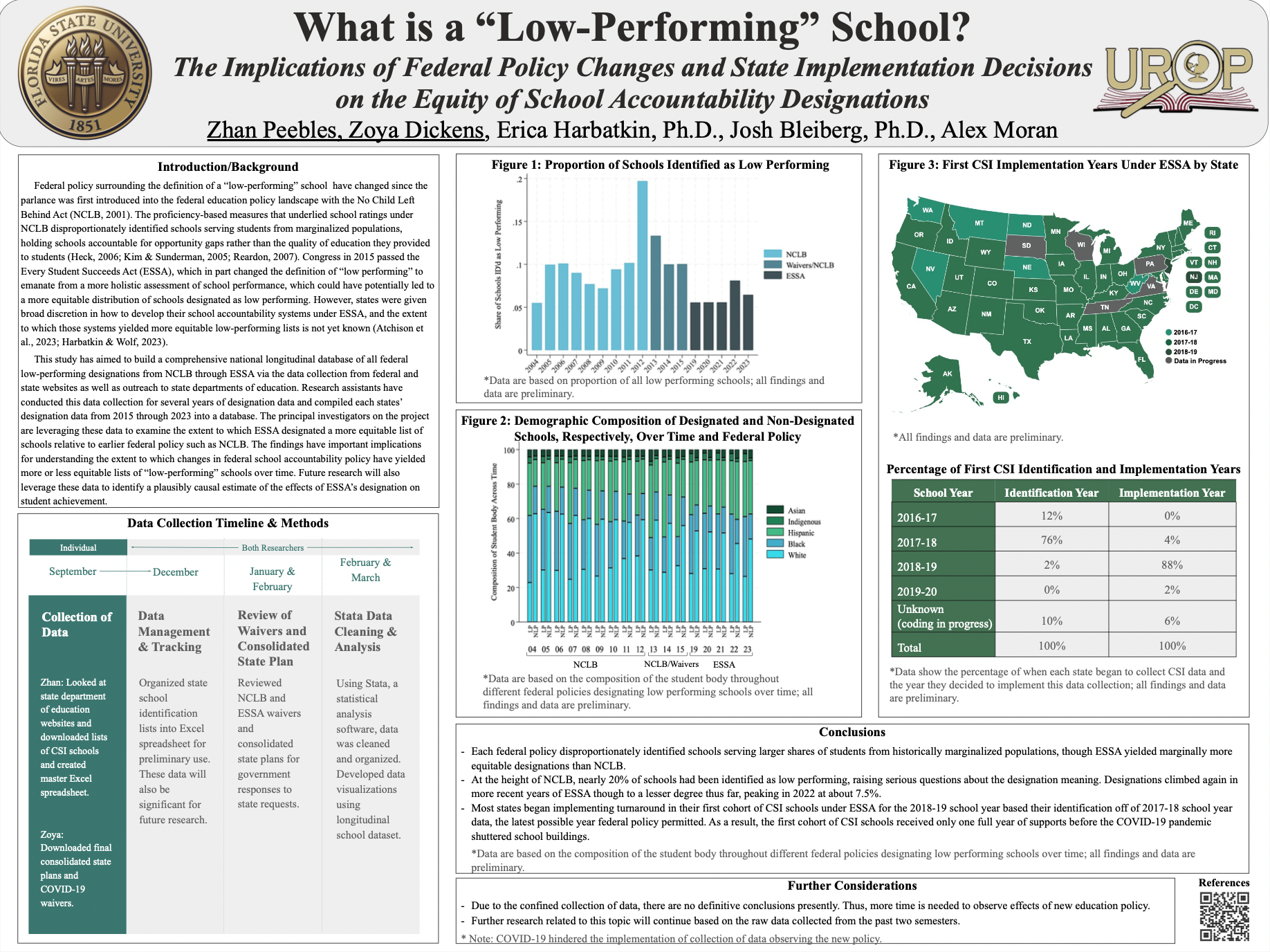Research Symposium
24th annual Undergraduate Research Symposium, April 3, 2024
Zoya Dickens Poster Session 1: 9:30 am - 10:30 am /67

BIO
My name is Zoya Dickens and I am a native of Panama City Beach, Florida. Currently, I'm a junior here at the College of Social Sciences and Public Policy majoring in Interdisciplinary Social Sciences, with a specialization in law & society, and minoring in Political Philosophy. My goals for the future are to attend law school and eventually practice as an attorney. Outside of school I enjoy both glass fusing and blowing.
What is a “Low-Performing” School? The Implications of Federal Policy Changes and State Implementation Decisions on the Equity of School Accountability Designations
Authors: Zoya Dickens, Erica HarbatkinStudent Major: Interdisciplinary Social Sciences, with a specialization in Law & Society
Mentor: Erica Harbatkin
Mentor's Department: Educational Leadership and Policy Studies Mentor's College: College of Education, Health, and Human Sciences Co-Presenters: Zhan Peebles
Abstract
For more than two decades, federal school accountability policy has required that states identify their lowest performing schools and intervene. Historically, the low-performing designation was based on school assessment scores, which are widely understood to be inadequate measures of school quality. Instead, they capture differences in opportunity to learn outside of the classroom and are therefore highly correlated with race and economically disadvantaged students.
The most recent iteration of this policy, the Every Student Succeeds Act (ESSA), took a more nuanced view of schools, and aimed to designate schools based on a more holistic range of measures, including proficiency, but also student growth and other nonacademic outcomes. In this project, researchers are compiling a dataset of all school designations from 2003 to present to examine the equity of the low-performing designation over time and federal policy. Preliminary findings show that low-performing schools disproportionately serve Black, Hispanic, and underprivileged students. Consequently, these observations are raising questions about the extent to which the low-performing designation is accurately capturing school effectiveness, or simply the demographics of the student body. Under ESSA, these disparities have continued, highlighting that while the new policy is a step forward in terms of equity, more serious changes are needed to our nation's approach to school accountability policy.
Keywords: education, school, no child left behind, federal policy, federal funding, education policy, ESSA


